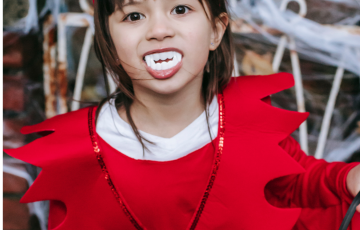The teenaged mind is only beginning to develop the ability for abstract thought processes such as considering the consequences of behaviour and planning for the future.
It is soaking in the hormonal bath of puberty. Emotional turmoil, irrational behaviour, and self-absorption are par for the course.
You can help your teenager keep a healthy mind
- find a balance between nurturing independence and setting limits
- talk to your teenager about positive and negative peer pressure
- help them develop relationships with good role models, friends, and peer groups
- stay involved in your child’s learning by helping with homework and providing life experiences
- discuss the role media plays in your teen’s world via books, the Internet, music, advertising and TV
- identify and seek help for mental health problems like depression and eating disorders
Emotional Turmoil
An emotional roller coaster might actually be understating the ride a teenager will take through the years between 13 and 19.
You can help yourself and your teenager put the emotional turmoil into perspective by remembering a few things:
- puberty, the physical transition to sexual maturity, sends a wash of hormones through your teenager
- these hormones are sometimes going to cause erratic and irrational behaviour
- keep this in mind when things seem out of control
- give your child some space to deal with her emotions
- try not to take things personally – now, more than ever, your child needs you to be calm and sturdy
- teenagers face many new responsibilities and stressors at school, work, and home
- help your child make good decisions about how much responsibility she can handle
- help them find constructive ways to deal with stress.
- your teenager’s entire relationship to the world and all the people they know is in flux while he tests out his independence and sexuality
- remember that your relationship with your child is supposed to change as he moves toward adulthood
- allow this transition to happen naturally and you will gain more from this new relationship than you lose
Independence
Independence is a huge goal for most teenagers, and an important one. They can’t become healthy adults without it. The trickiest part about parenting a teenager is fostering the maturity and responsibility your child needs to handle the independence she wants.
- involve your teenager in setting rules and boundaries
- make your expectations clear but be ready to compromise
- expect that rules and boundaries will be tested - be firm and calm about applying consequences
- as your teen gets older, and hopefully wiser, let him take on more independence - keep reassessing what he can handle.
- accept your teen’s individuality - their clothes and music, interests and friends are ways of figuring out who they are and who they aren't
- give your teen the space and support they need to do that
- trust your teenager - you’ve given them the tools he needs to go out and make good decisions
- make sure your child knows that they can come to you for help if they've gotten in over their head
Learning
Your teen is just now able to develop abstract thinking. This involves the ability to construct logic and foresee future consequences. At the same time, your teen is developing critical thinking skills. Nurturing these changes in your teen’s thinking will contribute to her increasing maturity.
You can help by:
- engaging your teen in conversations about the world – music, art, books, comics, TV, movies and the news
- teaching them how to express and support their opinions
- encouraging them to think critically about the things they see, hear and experiences.
As with children, teens’ learning takes place in both structured and unstructured environments. Your teen’s knowledge may surpass your own in some areas, but you are still a role model and teacher for them. Continue to support their learning within school and provide life experiences outside of school.
Mental Health
The physical stresses of puberty and the emotional turbulence of adolescence can leave some teenagers at risk for developing mental health problems.
As with all areas of parenting, the key to identifying mental health concerns is to stay involved in your teen’s life. Talk with and listen to your teen. Ask about their day, their work, and their friends.
Be aware of patterns and changes in your teen’s regular routines, moods, behaviour, and sleeping and eating habits.
If you are concerned about your teen’s mental health, talk to him about specific things you’ve noticed. There may or may not be logical explanations for his behaviour. If you are still concerned, suggest he see a doctor for a checkup.
If your child is diagnosed with depression, an eating disorder, attention deficit disorder, or any other illness, you do not have to deal with it on your own. There are many community resources dedicated to helping teens and their families deal with mental illnesses. Visit Island Health's Child, Youth and Family Mental Health page.
If you suspect your teen is suicidal, get medical help immediately.
Support can also be found through Vancouver Island's 24-hour crisis line: 1-888-494-3888.
Peer Pressure
Through the teen years, your teen’s friends will become more and more influential in his life. To build healthy minds, teens need strategies to deal with peer pressure.
Peer pressure can be a good thing. A group of friends may use pressure to convince a girl not to drive home drunk. It can also be a negative force pushing your teen into risky behaviour.
- talk to your teen about leadership qualities and ways they can influence their friends into making positive choices
- empower your teen by allowing them to make decisions for themselves - good decision-making practice and independent thinking experience are necessary tools for dealing with peer pressure
- equip your child with real-life strategies for coping with negative peer pressure - a secure sense of her values and a handy comeback can go a long way toward deflecting negative peer pressure
- encourage your teen to choose positive role models and relationships that give them positive peer pressure
- make sure your teen has a chance to join sports teams, clubs, and interest groups where they can meet a wide variety of people outside their usual social circle
- applaud independent thinking and individuality - not following the herd is a sign of a healthy mind



